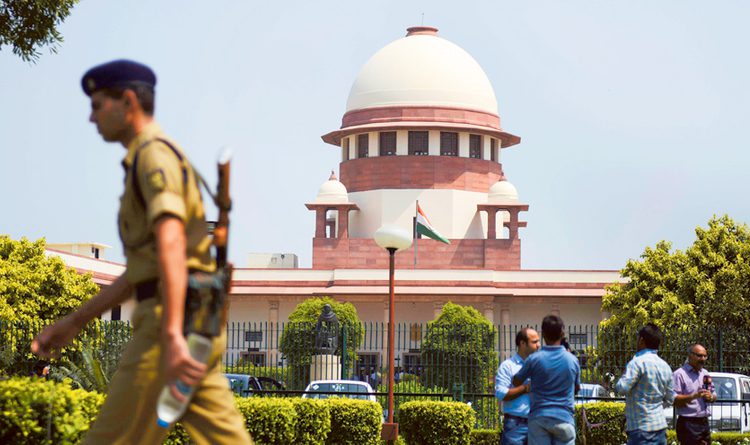Notice from the SC to the Centre regarding consistent victim compensation for hate crimes
New Delhi – The petition used examples from recent occurrences to demonstrate that the amount of compensation provided from the chief minister’s relief fund’s discretionary to victims of mob violence or lynching does not adhere to objective and equitable standards.
In response to a petition calling for universal compensation for victims of mob lynching and hate crimes, the Supreme Court on Friday requested comments from the federal government, the states, and the union territories.
In response to a public interest lawsuit brought by the Muslim intellectual group Indian Muslims for Progress and Reform, a bench of justices led by KM Joseph and BV Nagarathna served notice to the Centre, states, and union territories (UTs) to ascertain whether they had developed a plan to compensate victims of mob violence and lynching in accordance with a 2018 ruling by India’s Supreme Court in Tehseen Poonawala v. Union of India.
According to the petition presented by attorney Javed Sheikh, these plans have to be created in accordance with Section 357A of the Code of Criminal Procedure (CrPC). He used the 2018 decision to argue that the Court wanted the states to take into account physical and psychological trauma as well as lost wages and other factors when determining the ex-gratia sum for victims.
“The petitioner is seeking implementation of the directions issued by this Court and to have, to the extent practicable, uniform criteria for ex-gratia payment to victims of mob lynching and mob violence,” the bench stated.
After eight weeks, the Supreme Court re-posted the case for review. The Court instructed all governments to submit answers until the next date outlining how the judgment’s directives have been followed and how it has been done.
The petition also claimed that because ex-gratia compensation is not consistently awarded to victims, some jurisdictions wind up paying a hefty sum while others receive a pittance.
The petition used examples from recent events to demonstrate that the amount of compensation paid from the chief minister’s relief fund at the chief minister’s discretion to victims of mob violence or lynching does not adhere to objective and just standards.
To exemplify its thesis, it used two hate crimes that occurred in Rajasthan. A 50 lakh rupee payment and government jobs for the family of Kanhaiya Lal, a tailor who was killed in Udaipur in June, were given to the family. In contrast, the plea stated, a sum of 5 lakh was awarded as compensation in a case from the same state where a cow vigilante group abducted and mercilessly burned to death two people from a minority community in July.
The petition sought orders against the state to establish consistent guidelines for at least paying an ex-gratia amount, highlighting how the government’s actions violated the fundamental guarantee of equality and non-discrimination granted under Articles 14 and 15 of the Constitution.
The bench did question its ability to compel consistency across the states. “We don’t want to imply that victims don’t have a right to recompense. Each compensation plan, however, is unique to a given state. It cannot be consistent.
According to the petitioner, the 2018 ruling ordering states to create a compensation plan for these offences was a positive step in the right direction. But the petitioner’s attorney emphasised that, as of yet, just a few states had implemented the plan.



